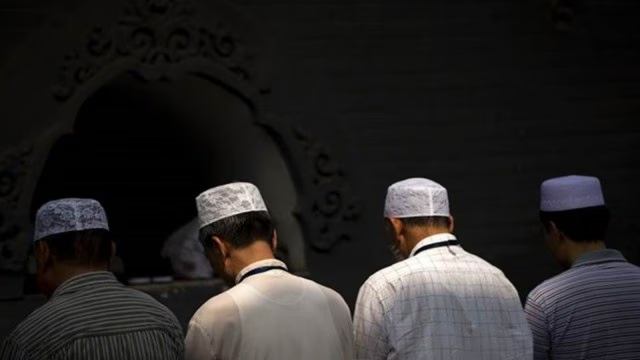“Chhattisgarh NSS Camp: 7 Professors Among 8 Booked for Hurting Religious Sentiments Over Forced Namaz”

A recent incident in Chhattisgarh has stirred controversy. Seven professors and one other person have been booked for allegedly forcing students to offer Namaz during a National Service Scheme (NSS) camp. The case has raised concerns about religious freedom and the role of educational institutions in promoting religious activities.
What Happened at the NSS Camp?
The incident took place during a routine NSS camp in Chhattisgarh. The camp, intended for community development and social service, became controversial when students were reportedly instructed to perform Namaz.
Many students claim that they felt pressured to participate in the religious activity. Some said they were not allowed to practice their own faith during the camp, creating discomfort among those who didn’t want to engage in religious rituals.
The Involvement of Professors
Seven professors from the college that organized the camp were allegedly involved in encouraging students to take part in Namaz. Some students reported feeling uncomfortable and stated that they feared consequences if they refused.
Professors, who are expected to uphold academic and ethical standards, played a key role in this situation. Many argue that educators should promote inclusivity and avoid mixing religious practices with educational activities.
Legal Action and Police Investigation
Following complaints from students, the police launched an investigation. Authorities quickly booked the professors and one other individual for hurting religious sentiments. The charges are based on sections of the Indian Penal Code (IPC) related to “deliberate acts intended to outrage religious feelings.”
The booking of these professors has sparked debates about students’ rights to freely practice their religion without facing coercion. Legal experts are closely monitoring the case to see what precedents it may set.
Student and Parent Reactions
Students and parents have reacted strongly to the incident. Many students expressed anger and discomfort over the forced participation in religious activities. One student shared, “We were told to offer Namaz, and when we refused, we felt uncomfortable. It wasn’t just about the prayer, but about the pressure to conform.”
Parents have also raised concerns, stating that educational institutions should focus on academics and personal growth, not on promoting specific religious practices. One parent noted, “Our children should learn, not be told which faith to follow.”
Political and Religious Reactions
The incident has sparked a variety of responses from religious and political groups. Some have condemned the forced participation in religious activities, while others have defended the professors, claiming that the camp was voluntary and meant to foster unity.
Political leaders in Chhattisgarh have also commented on the situation. A spokesperson from a major political party emphasized the need for accountability, stating, “This is a clear violation of students’ rights. Those responsible must face legal consequences.”
What Is the Role of NSS?
The National Service Scheme (NSS) is a program designed to encourage students to participate in social welfare activities like cleanliness drives and environmental conservation. Its goal is to foster a sense of social responsibility among youth.
However, this incident has raised questions about whether NSS camps should include religious practices. While the NSS is meant to be secular, the incident suggests that the boundaries of its mission are being tested.
How Can Educational Institutions Promote Secularism?
This controversy highlights the importance of maintaining secularism in educational institutions. Secularism ensures that students from all religious backgrounds feel respected and included. Educational institutions must remain neutral in matters of religion.
To prevent similar issues in the future, clear policies are needed to protect students’ freedom to practice their religion. Schools and colleges must avoid imposing religious practices on students and instead focus on fostering inclusivity.
Conclusion
The controversy in Chhattisgarh, where students were allegedly forced to participate in Namaz during an NSS camp, raises important questions about the role of religion in educational institutions. With seven professors facing legal action for allegedly violating students’ rights, this case will likely set a precedent for how similar incidents are handled in the future.
As the case unfolds, the focus should remain on ensuring that all students, regardless of their religion, feel comfortable and respected in their academic environments.
Outbound Link: Read more about the National Service Scheme (NSS) and its role in India






